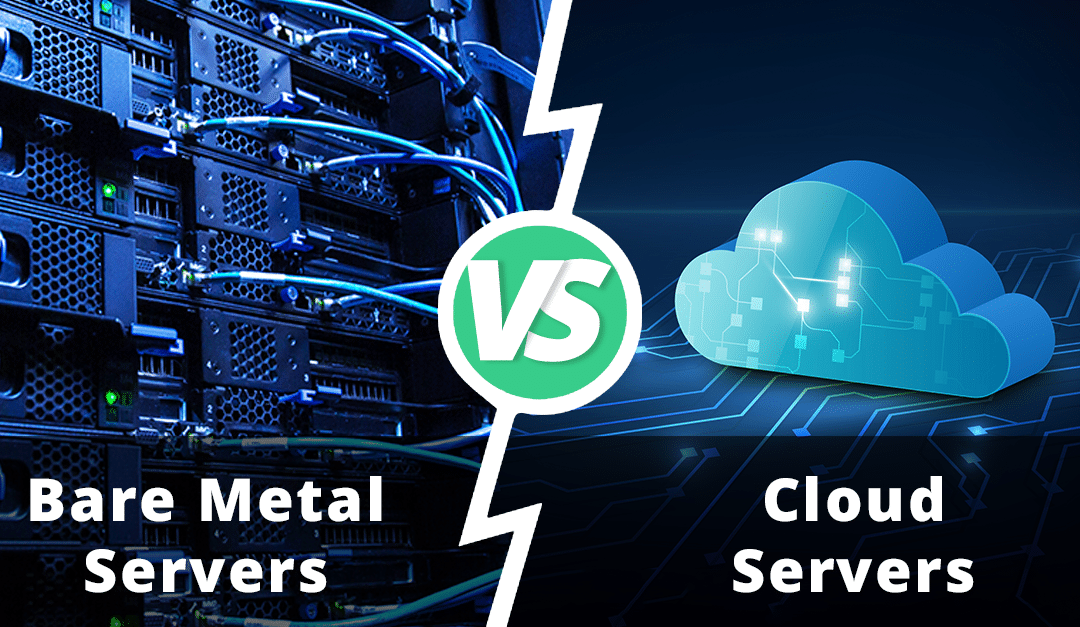
Cloud or Bare Metal Server? What’s The Difference?
What is a Bare Metal Server?
Bare Metal Server is a physical server dedicated to a single tenant, which allows users full access to the hardware. This access is possible because a bare metal server does not use a hypervisor layer to create separate virtual machines (VM) on the server. Instead, placing the operating system directly on the server eliminates the need for layers. As a result, the performance is among the best on the market.
What is a Cloud Server?
A cloud server is a robust physical or virtual infrastructure that stores and processes applications and data. They are formed by dividing a bare metal server into numerous virtual servers using virtualization software.
Cloud servers are a crucial part of cloud technology. The widespread deployment of server virtualization has helped cloud computing’s rise and continued growth.
Benefits of Bare Metal Server:
- Greater Access Control: The user of a dedicated server is given Administrative or ‘Root access’ to the server. This level of access allows users to have more control over the device’s hardware and software. Users can micromanage the server’s processes, optimize performance, and install additional applications using administrator-level privileges.
- Customizability: One of the best features of a bare metal server is tailoring it to meet your specific business needs. You can pick and select which features and specifications you need. Whether you need a particular GPU model, NVMe storage for high IOPS, or a specific RAM-to-CPU ratio, bare metal can do it all. You can customize your bare metal server and add the features that you need.
- Security & Reliability: When it comes to security, a dedicated server can be the best option for you. The name ‘dedicated’ is part of the proof. Compared to a virtual server, bare metal is a single-tenant physical server that physically isolates your applications, data, and resources for increased security and privacy. Dedicated servers are kept in a secure data center with controlled access points for on-site personnel when purchased from a hosting provider like UnitedLayer. HIPAA and PCI compliance are also easier to achieve with dedicated servers due to a high level of security.
Benefits of Cloud Server:
- Data Security: The security of a firm’s data is one of its main concerns, regardless of its size or industry. Data breaches and other forms of cybercrime may wreak havoc on a company’s revenue, customer loyalty, and brand image. Baseline security measures, such as authentication, access control, and encryption, are implemented by cloud storage providers for their platforms and the data they process. Most businesses then supplement these protections with additional security measures to strengthen cloud data security and restrict access to sensitive data in the cloud.
- Scalability & Flexibility: Cloud service options range from basic public cloud packages to fully managed custom cloud solutions tailored to specific demands, all of which may be scaled to match a company’s changing priorities and ongoing growth.
- Reliability: The customer’s website is hosted in the cloud on several servers or computers. If a single piece of hardware fails, additional machines can instantly step in to keep the website up and operating.
How can we help you?
At UnitedLayer, we provide a dedicated virtual data center that allows enterprises to manage their private cloud fully. It comes with our enterprise-class support, which has a 15-minute response time and experts available 24x7x365 to provide support for any issue.
Whether you want a classic public cloud or bare metal server, contact us today to discuss your requirements and setting up the best hosting service for your business.
Got questions? Want to talk specifics? That’s what we’re here for.




